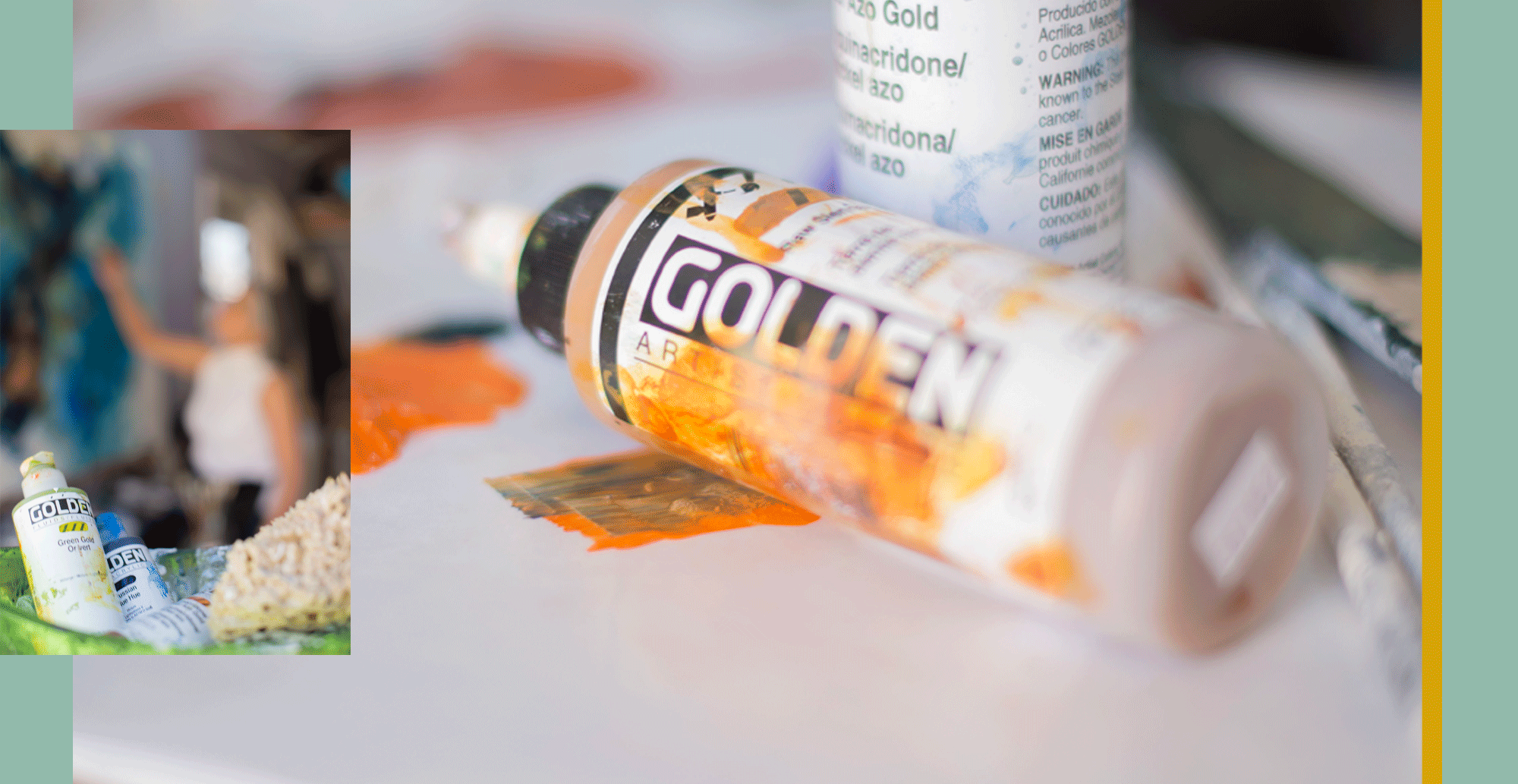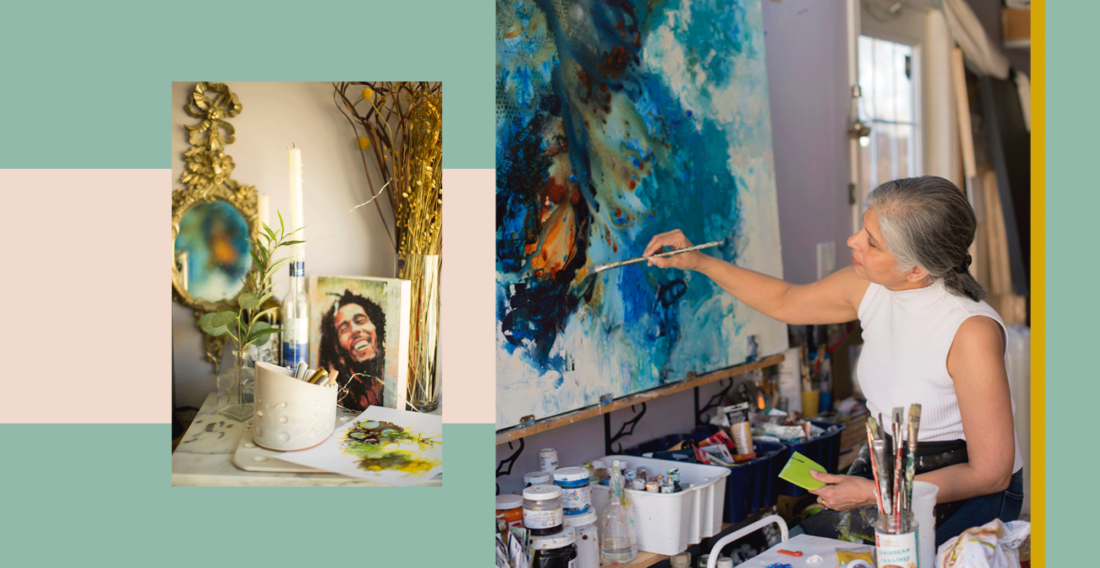The Artistic Edge – How To Unlock Creative Mindset As A Business Gamechanger
For any manager wondering how to foster creative problem-solving and idea generation within their team, I recently stumbled upon a great article on understanding the most important trait for creativity– openness.
The article discusses the OCEAN personality test. It is preferred over Meyers-Briggs, enneagrams, and yes– even horoscopes– by psychologists when testing personality. The traits are studied by researchers and categorized as: Openness, Conscientiousness, Extraversion, Agreeable, Neurotic (OCEAN.)
Of the five traits, openness to new experience is the only personality factor that researchers have consistently linked to creativity. People who rate high on the openness scale tend to be more creative in general, are more likely to pursue creative achievements, engage in divergent thinking, take risks, and enjoy creative hobbies.
I have included a link to the full OCEAN test here, and I encourage anyone who finds personality psychology interesting to take the test if you have not before.
Being willing to listen to new ideas can often create a safe space for more ideas to flow. Taking risks can lead to growth and personal development. The first step in fostering creativity is in knowing how naturally open to new experiences your team currently is.
This informal, quick quiz I found from this article can help determine where your team falls on the Openness scale. Ask your team how they feel about these questions. There are no right or wrong answers!
Do you strongly agree, agree, or disagree?
- I’m good at coming up with new ideas.
- I often think about the deeper meaning of things.
- I’m curious about how things work.
- I enjoy thinking about theoretical ideas.
- I have many artistic hobbies.
- I place a high value on aesthetics and artistry.
- I have an active imagination.
- I appreciate being around diverse groups of people.
- I enjoy having philosophical discussions.
- I tend to daydream or get distracted by flights of fancy.
- I like going to cultural events, art museums, and poetry readings.
- I would prefer to have a theoretical discussion rather than making small talk.
If you strongly agree with most or all of these statements, then you are likely very open to experience.
If you moderately agree with all or some of these statements, you are probably like most people and fall somewhere in the middle of the openness spectrum.
If you disagree with all or most of these statements, then you might be lower on openness. You may prefer tradition, structure, and routine rather than a new experience.
Regardless of where your employees fit on the openness scale, art is a proven tool for increasing awareness and emphasizing the relaxation of the body and mind. By encouraging your team to embrace their artistic side, you might just see more idea-generating conversations, problem-solving effort, and approaching tough situations with empathy.

For anyone who feels like openness and creativity is for the hippies– it is not! Regardless of whether you feel the need to express yourself creatively (or not,) practicing art is beneficial for your wellbeing. The Washington Post published an article that described a study on cancer patients who practiced art therapy. I found the results fascinating! It showed that art therapy has a healing effect for a variety of ailments, including depression, trauma and illness.
” In a recent study of cancer patients, an art therapy intervention — in conjunction with conventional treatments like chemotherapy and radiation — not only diminished symptoms typically associated with cancer such as pain, fatigue and anxiety, but also enhanced life expectancy. The study, its authors said, was based on the belief that “the creative process involved in the making of art is healing and life-enhancing. It is used to help patients, or their families, increase awareness of self, cope with symptoms, and adapt to stressful and traumatic experiences.” – The Washington Post
Just incredible, isn’t it? Regardless of whether you feel like your personality is naturally creative or open to new experiences, I hope you try making art as a tool for meditation and calmness. You do not have to wait to be inspired by a muse to be flexing your art muscles!
Here is a quick exercise that helps me come up with new ideas if I am feeling stuck. I encourage you to try it when you are having a busy day– stop for a moment and create. You just might find it is easier to refocus your energy and be a more collaborative, productive team-member or employee.
- Draw a random letter or number
- Take a moment to consider possible shapes it could take on
- Add lines and shapes to reimagine the figure
With this exercise, encourage your team to break up a busy day to refocus and recharge; finding stillness in the day-to-day chaos. With a simple doodle, you can relax your mind and change up your entire attitude. Rethink the problems you are facing and address them with what I call “The Artistic Edge,” a mindset you can achieve by practicing art.
Art is a way to practice openness and creativity with no risk. There is no bad art– If you don’t think your art is good, find your confidence to try, regardless. No one else has to see it! Creating art is about creative expression, but it is also about breaking free from the constant debilitating chatter of the mind.
Want to know how you can bring the Artistic Edge workshop to your boardroom? Contact me for more information on my workshop.

Chris studied art history at McGill University and upon returning to Toronto worked in an art auction house. Over time he discovered that he’d prefer to build a career in the investment world and purchase the occasional painting to scratch his art itch.
14 years later he enjoys assisting his clients meet their investment goals at BMO Nesbitt Burns and is slowly rounding out his art collection …with the occasional piece from his one-year-old daughter Harper of course.
Connect with Chris here.
From your point of view, how can creativity be good for business?
Creativity in problem solving is good for business. It might not be creativity in design, creativity in solving problems is definitely a good skill to have. Having an open mind to other points of views and other ways of doing things is valuable. Thinking outside the box is creativity at work. Although it is not the same visual output as painting, it certainly involves doing things a bit differently, and in business, that’s what stands you apart from the rest. Creativity is an incredible skill set.
How does creativity make its way into your everyday life?
I used to draw and paint, but I, unfortunately, don’t have the time to anymore. The way I express myself these days is in how I communicate– my creativity manifests itself in my writing. It’s not in exciting prose or poetry, but I love to read and take writing seriously, even if it’s just an email. I also have a one-year old daughter, and I will occasionally explore the art of finger painting, every now-and-again.
How do you know when you have found a piece that truly speaks to you? I.e. Is it a feeling, a story, information about the artist or something else that makes you want to place the artwork in your home?
This may be a controversial opinion, but the artist almost entirely doesn’t matter to me. Interesting backstory? I’m interested in learning about, sure, but it won’t change how I look at a certain piece. For me, the artwork has to stand on its own and be evaluated separately from the creator. An artist could be a bad person but it wouldn’t change my appreciation of their work, because it is the creation that I value.
I’ll give you an example; Caravaggio was brilliant. He and someone the world had seen as a master of realism. He was probably the most revolutionary artist of his time, and yet– He was a murderer. He was a bad person and yet, I would have no issue putting his artwork in my home and admiring it. In my opinion, you are not hanging up the artist’s ethical code, you are hanging up the art on the wall.
You are involved in both the art and business worlds– how are the two similar?
The two are similar in that they’re both very competitive. I studied Art History at McGill and worked at an arthouse in Toronto after graduation. There was a painting I admired, it was a Group of Seven painting. One day, a gentleman wearing a suit bought it for a quarter million dollars– one painting!
When the man came into the arthouse after purchasing it, I just went up to him. “Excuse me,” I said, “I wanted to congratulate you and ask you… what you do for a living?” I’m sure he was a little surprised by the question but I got my answer. He was a stockbroker.
At the time, I didn’t even know what a stockbroker was, but meeting him changed the course of my life. It was the moment I realized I could admire art at work, or I could work to admire the art at home.
So I quit my job soon after and traveled to Asia on a solo trip for 6 months. When I came back home, I decided I was going to become a stockbroker. I studied, took a bunch of exams to become accredited, and on my first interview, I got hired.
Now, 14 years later at the same firm that hired me and I’m building a collection of art on my own.
Coming full circle, to answer your original question, working in both the art and business worlds, I can tell you that both are very competitive. Art world is surrounded by more beautiful things, but in the business world, if you succeed, you can surround yourself with those things at home.
Lastly, what advice do you have for someone investing in their first piece of art?
Truthfully, what I would say is don’t treat art as a financial investment, but it is absolutely an investment. It is an investment in yourself, your happiness, and long-term fulfillment. Don’t buy that art thinking it will appreciate in value because of course there’s a chance it will, but art should be appreciated for its ability to evoke emotions and memories. Let stocks be where you make your money and art where you find your happiness.



